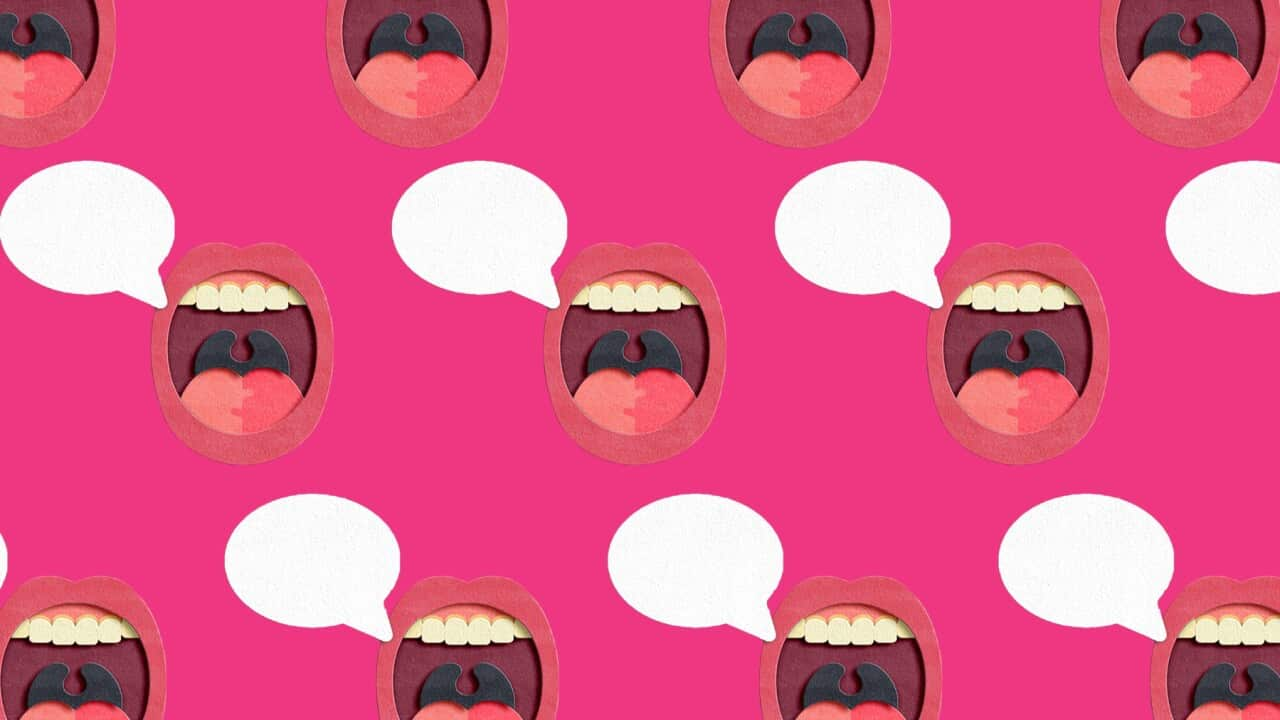This lesson is suitable for intermediate-level learners. After listening, test your knowledge with our quiz.
Learning notes
Different phrases to use when talking about eyesight and vision:
- I think my eyesight is getting worse.
- I’ve been squinting a lot lately.
- I feel like I’m going blind as a bat sometimes!
- My eyes feel really strained after reading.
- Have you considered getting your eyes checked?
- I had my eyes tested.
- I've been putting off getting my eyes tested.
- My optometrist gave me a prescription for glasses and now I see much more clearly.
- Are you long or short sighted?
Learning focus:
English has a lot of different tenses. In this podcast you will hear this one:
- I’ve been squinting a lot lately (have + been + verb + ing)
- Yeah, I’ve been putting it off (have + been + verb + ing)
- And it’s been happening a lot recently! (has + been + verb + ing)
We use it when you want to stress how long something has been happening – you are focusing on the process of the verb and how long it has taken, not just the action.
So we can use it whenever we want to focus on the length of time we have been doing something. For example:
- I have been waiting all my life for someone like you.
- I have been living in Australia a long time.
- I have been thinking that we should get a cat.
Colloquial expressions:
If you see eye to eye with someone, it means you agree with them and think the same way about something.
Bats are believed to have poor vision, so blind as a bat is a funny way of saying you can’t see well.
To put something off is to delay or avoid doing it.
Vocabulary:
An optometrist is a healthcare professional who checks and treats vision problems. They can prescribe glasses or contact lenses and help with eye conditions.
An ophthalmologist is a medical doctor who specializes in eye care. They can perform eye exams, diagnose, and treat eye diseases, prescribe glasses or contact lenses, and even perform eye surgeries.
An optician is a professional who sells glasses or contact lenses, usually using a prescription from an optometrist.
To squint is to narrow your eyes tin order to see something more clearly.
If your eyes feel strained, they are tired and uncomfortable.
A prescription is a written assessment from a doctor or healthcare professional which shows the type of medicine or glasses that you need.
If you are long sighted, you can see things clearly that are far away, but things up close, like reading a book, look blurry.
I you’re short sighted, you can see things clearly up close, like reading a book, but things far away, like road signs, may look blurry.
Transcript:
(Note: This is not a word-for-word transcript)
SBS acknowledges the Traditional Custodians of Country and their connections and continuous care for the skies, lands and waterways throughout Australia.
Imagine this: You're at the supermarket, buying groceries for the week. The place is busy, your trolley is almost full, and everything seems fine.
But as you reach for a jar of pesto sauce, you realise you can’t quite read the ingredients on the label. The words, that were once clear and easy to see, now look blurry and too small.
You can’t read them. So, you try to focus, but it doesn’t help. You wonder, ‘Is it time to get my eyes checked?’
Hi, my name is Josipa, and like many people of my age, I’ve noticed changes in my eyesight. It sneaks up on you, doesn’t it? Suddenly, reading isn’t as easy as it used to be.
And here’s something funny—I’m not even sure what to call an eye doctor in English. Is it an optometrist, an optician, or an ophthalmologist? What’s the difference between them?
In this episode, we’re going to find that out together—with a little help from Allan and Claire. Let’s listen to them as they chat about their eyesight.
Claire
I think my eyesight is getting worse. I’ve been squinting a lot lately.
Allan
I’m blind as a bat without my glasses. Have you considered getting your eyes checked?
Claire
Yeah, I’ve been putting it off, but I think it’s time. My eyes feel really strained after reading.
Allan
You should definitely go. I had my eyes tested last month, and it’s made a big difference. My optometrist gave me a prescription for glasses and now I see much clearer.
Claire
Are you long or short sighted?
I see eye to eye with Claire on many things, but delaying getting my eyes checked isn’t one of them.
By the way, if you see eye to eye with someone, it means you agree with them and think the same way about something.
Anyway, the day after I couldn’t read the ingredients on a pesto jar, I rushed to see an optometrist.
An optometrist is a healthcare professional who checks and treats vision problems. They can prescribe glasses or contact lenses and help with eye conditions.
So now we know what an optometrist does. But what about an optician or an ophthalmologist? We’ll find that out later. First, let’s look at some phrases for talking about eyesight that’s not as sharp as it used to be. Claire started by saying,
I think my eyesight is getting worse.
Claire first said that her eyesight is getting worse. This is a simple and direct way to say that your vision has changed.
She then said,
I’ve been squinting a lot lately.
Every time you look directly into the bright sun, you squint. People usually squint when something is blurry or hard to see. Squinting is to narrow your eyes in order to help you to see something more clearly.
So, when Claire says, ‘I’ve been squinting a lot lately,’ she’s saying that she has often had to narrow her eyes because her vision isn’t clear. It’s a sign that she might need glasses or that her eyesight is getting worse. And it’s been happening a lot recently!
Allan then said,
I’m blind as a bat without my glasses.
Here, Allan is exaggerating about his eyesight. Bats are believed to have poor vision, so saying ‘blind as a bat’ is a funny way of saying that he can’t see well, and we usually only say it when we can really hardly see at all.
Allan isn’t actually going blind—he’s just saying that he thinks that his vision is very poor sometimes.
And if someone says they feel like they’re ‘blind as a bat’, you might ask them,
Have you considered getting your eyes checked?
‘Have you considered’ means ‘Have you thought about’ doing something. And, when you say ‘getting your eyes checked,’ it means going to an optometrist to have your eyes examined and to make sure that your vision and your eyes are healthy.
Do you remember if Claire got her eyes checked? She said,
I’ve been putting it off, but I think it’s time.
She says that she has been putting off going to have her eyes checked. If you've been putting something off, you have been delaying or avoiding doing it.
You know you should do it, but you keep thinking to yourself that you will do it later. Me, for example, I’ve been putting off going to the gym lately because I’ve been so busy with work – but I really should go, shouldn’t I?
But let’s go back talking about eyesight.
My eyes feel really strained after reading.
If your eyes feel strained, they feel tired and uncomfortable. They may feel a lot of discomfort or pressure. When someone says that their eyes feel strained after reading, it means that their eyes have been so working hard to focus on the text, that they feel sore or tired.
But let’s say you’re not putting off seeing an eye doctor like Claire. Then, you could say, like Allan,
My optometrist gave me a prescription for glasses and now I see much clearer.
We’ve already heard that an optometrist is a healthcare professional who checks and treats vision problems.
They can prescribe glasses or contact lenses by giving you a prescription, which is a written assessment that tells you how well your eyes can see and what type of glasses you need.
Another person who can perform eye exams and write a prescription is an ophthalmologist.
An ophthalmologist is a medical doctor who specialises in eye care. They can perform eye exams, diagnose and treat eye diseases, prescribe glasses or contact lenses, and even perform eye surgeries. They have more medical training and can handle more complex eye issues and treatments than optometrists.
An optician is a professional who sells glasses or contact lenses, usually using a prescription from an optometrist.
And talking about the glasses, Claire asked Allan,
Are you long or short sighted?
Long sighted or short sighted. I’m long sighed, which means that I can see things clearly that are far away, but things up close, like reading a book, look blurry. So, I need my reading glasses.
And if you’re short sighted, it means you can see things clearly up close, like reading a book, but things far away, like road signs, may look blurry. People who are short-sighted usually need glasses to see distant objects more clearly.
A big thank you to our educational consultant, Professor Lynda Yates, and our guest Kalp Shah.
Paul Nicholson and Lily O'Sullivan voiced the characters of Allan and Claire.












